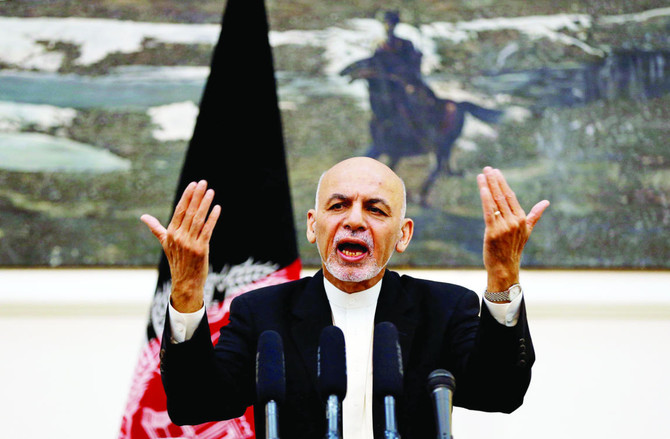KABUL: The Afghan National Unity Government (NUG) has appointed an election commission and set Oct. 20 as the date for parliamentary and district elections.
The moves follows more than three years of delay due to security threats and NUG infighting.
But some politicians, lawmakers and ordinary Afghans doubt the vote will be transparent, free or secure, as militant attacks have become more prevalent since June 2015, the original date for the long-delayed elections.
The October poll is seen as a test of the ability of the US and the NUG to deal with challenges ahead of the 2019 presidential and provincial council elections.
Given the closeness of the timeline, the election commission and the NUG face colossal tasks and challenges to hold the poll, according to lawmakers and experts.
Voter registration is set to kick off in mid-April, but the election body has yet to hire enough officials, establish offices in the 34 provinces, or appoint heads of the secretariat for the commission and for the electoral complaints body.
The fate of the much-touted electronic national ID cards, aimed at preventing fraud, is in limbo.
An ID is a must for a would-be voter, but some lawmakers say more than half of Afghans do not possess them, and given the slow pace of work, graft and bureaucracy in government institutions, it is highly unlikely that enough IDs will be printed in time.
More than 3,000 of the 7,000 voting centers are either under serious or medium threat, or out of the NUG’s control, say election experts and some MPs.
“Our perspective is that elections must be held to give legitimacy to Parliament, which can ensure the legality of the government. This is very important,” Habibullah Shinwary, an official at the Elections Transparency Organization for Afghanistan (ETOA), told Arab News.
“But we have deep concerns about logistics and security, raising doubt as to whether we can really hold elections.”
The ETOA has raised on numerous occasions its concerns with government organs and the election commission, he said.
“But unfortunately, the government hasn’t taken any action or acted properly. It takes action when it’s too late.”
Sayed Ali Kazemi, a lawmaker from Kabul, told Arab News: “People have lots of questions about these elections. Parliament asked the commission today (Saturday) to appear before lawmakers to answer our questions and those of the people, but it didn’t turn up.”
Security threats during voter registration and on election day are the most important concern of ordinary Afghans, MP Nazifa Zaki told Arab News.
Taliban attacks during the last election deterred people from voting, led to killings and enabled fraud, she added.
The government has vowed to secure voting centers by the time of the elections.
A Taliban spokesman told Arab News that it has yet to come up with an official stance on the vote.
Afghans skeptical about transparency, security of October elections

-
{{#bullets}}
- {{value}} {{/bullets}}
